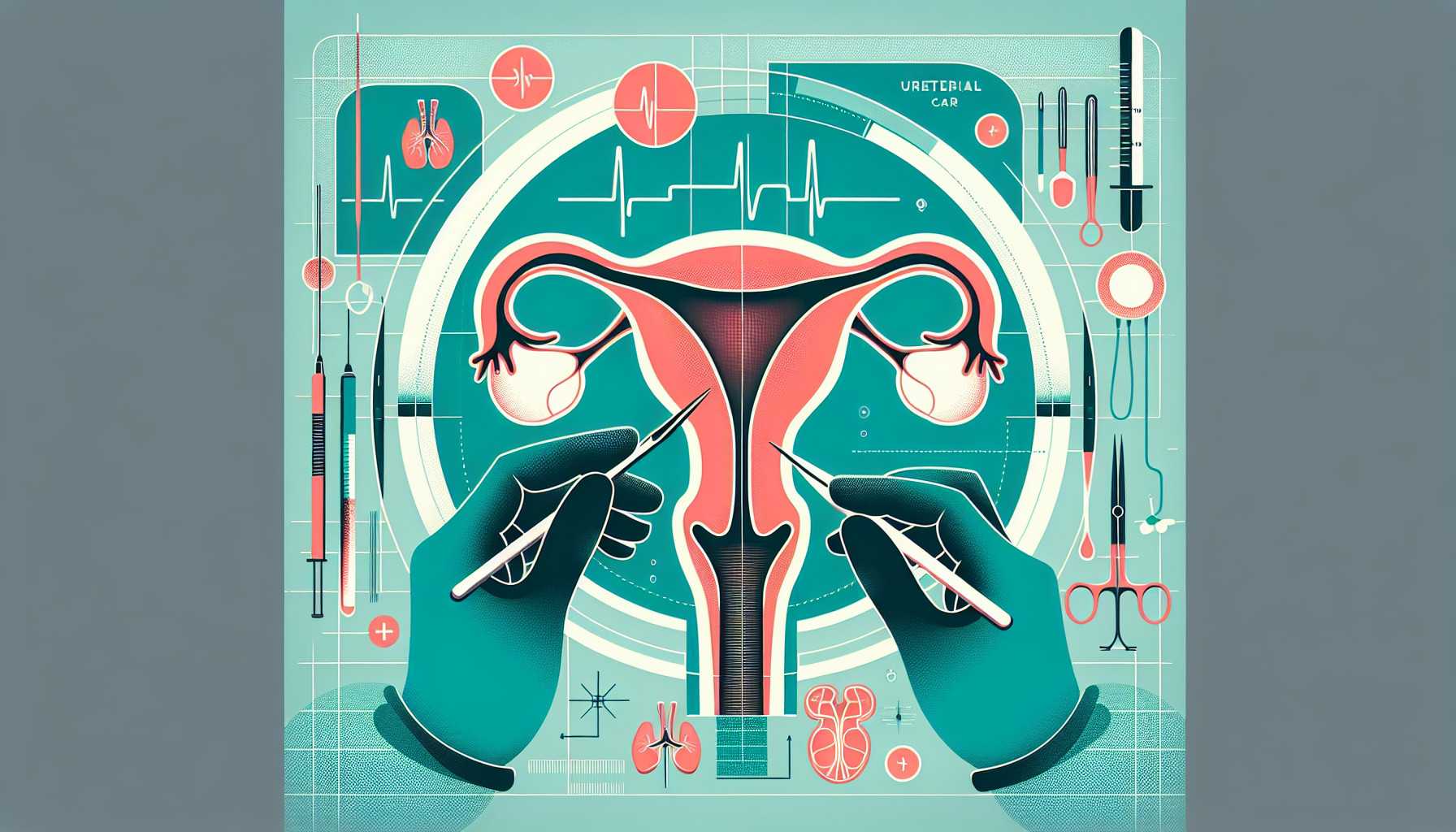Our Summary
This research paper studies the necessity of a surgical procedure called ureteral reimplantation in patients diagnosed with vesicoureteral reflux (VUR) during a bladder surgery known as augmentation cystoplasty (AC). Vesicoureteral reflux is a condition where urine flows backwards from the bladder into the kidneys. Augmentation cystoplasty is a surgical procedure to increase the size of the bladder.
The study followed 19 patients, all of whom underwent AC for a condition known as neurogenic bladder (a bladder dysfunction caused by a neurological condition) along with VUR. The patients’ ages ranged from 3 to 38 years and they were observed for a median period of about 15 years.
The researchers found that VUR was detected in all 19 patients, involving 27 ureters (tubes that carry urine from the kidneys to the bladder). Ureteral reimplantation was done for only one patient, but for the remaining patients this procedure was not performed. The study found that post-surgery, the reflux was not detectable in most cases, was reduced in a few, and remained the same in one case. There was no case where the VUR condition worsened.
The conclusion of the study is that ureteral reimplantation is not necessary for patients with VUR undergoing augmentation cystoplasty.
FAQs
- What is the purpose of ureteral reimplantation during augmentation cystoplasty?
- What were the findings of the study regarding the need for ureteral reimplantation in patients with vesicoureteral reflux?
- How was the renal function evaluated in patients who underwent augmentation cystoplasty for neurogenic bladder with vesicoureteral reflux?
Doctor’s Tip
A doctor may advise a patient undergoing ureteral reimplantation for vesicoureteral reflux during augmentation cystoplasty to follow all postoperative care instructions carefully, including taking prescribed medications, attending follow-up appointments, and maintaining good hydration. It is also important to report any concerning symptoms or changes in renal function promptly to the healthcare provider.
Suitable For
Patients with neurogenic bladder who undergo augmentation cystoplasty and have vesicoureteral reflux (VUR) are typically recommended ureteral reimplantation. In this study, ureteral reimplantation was not found to be necessary for VUR during augmentation cystoplasty, as postoperative videourodynamics showed improvement or stabilization of reflux in the majority of cases. Therefore, patients with VUR during augmentation cystoplasty may not always require ureteral reimplantation for management of their condition.
Timeline
Before ureteral reimplantation:
- Patient undergoes augmentation cystoplasty for neurogenic bladder with vesicoureteral reflux (VUR)
- VUR is detected in 19 patients, involving 27 ureters
- VUR grade ranges from I to V
- Ureteral reimplantation is not performed in 18 patients, while one patient undergoes the procedure in the early era of the study
- Postoperative videourodynamics shows improvement or stability of VUR in most cases
After ureteral reimplantation:
- VUR is not necessary for VUR during augmentation cystoplasty
- Follow-up period is a median of 14.8 years
- Reflux is no longer detectable in 85% of ureters, downgraded in 11%, and unchanged in 3%
- Renal function is monitored through periodic inspection of serum creatinine level and estimated glomerular filtration rate (eGFR)
What to Ask Your Doctor
- What is ureteral reimplantation and why is it sometimes necessary during augmentation cystoplasty for vesicoureteral reflux (VUR)?
- How common is VUR in patients undergoing augmentation cystoplasty for neurogenic bladder?
- What are the potential risks and benefits of ureteral reimplantation in the context of augmentation cystoplasty?
- How will the need for ureteral reimplantation be determined in my specific case?
- What are the expected outcomes and long-term effects of ureteral reimplantation for VUR during augmentation cystoplasty?
- How will my renal function be monitored after the procedure?
- Are there any alternative treatments or approaches to managing VUR during augmentation cystoplasty?
- What is the success rate of ureteral reimplantation in preventing or improving VUR in patients with neurogenic bladder?
- What should I expect in terms of recovery and follow-up care after ureteral reimplantation?
- Are there any lifestyle changes or precautions I should take after undergoing ureteral reimplantation for VUR during augmentation cystoplasty?
Reference
Authors: Chiba H, Kitta T, Higuchi M, Kusakabe N, Kon M, Nakamura M, Shinohara N. Journal: BMC Urol. 2022 Mar 29;22(1):48. doi: 10.1186/s12894-022-00997-7. PMID: 35351067
